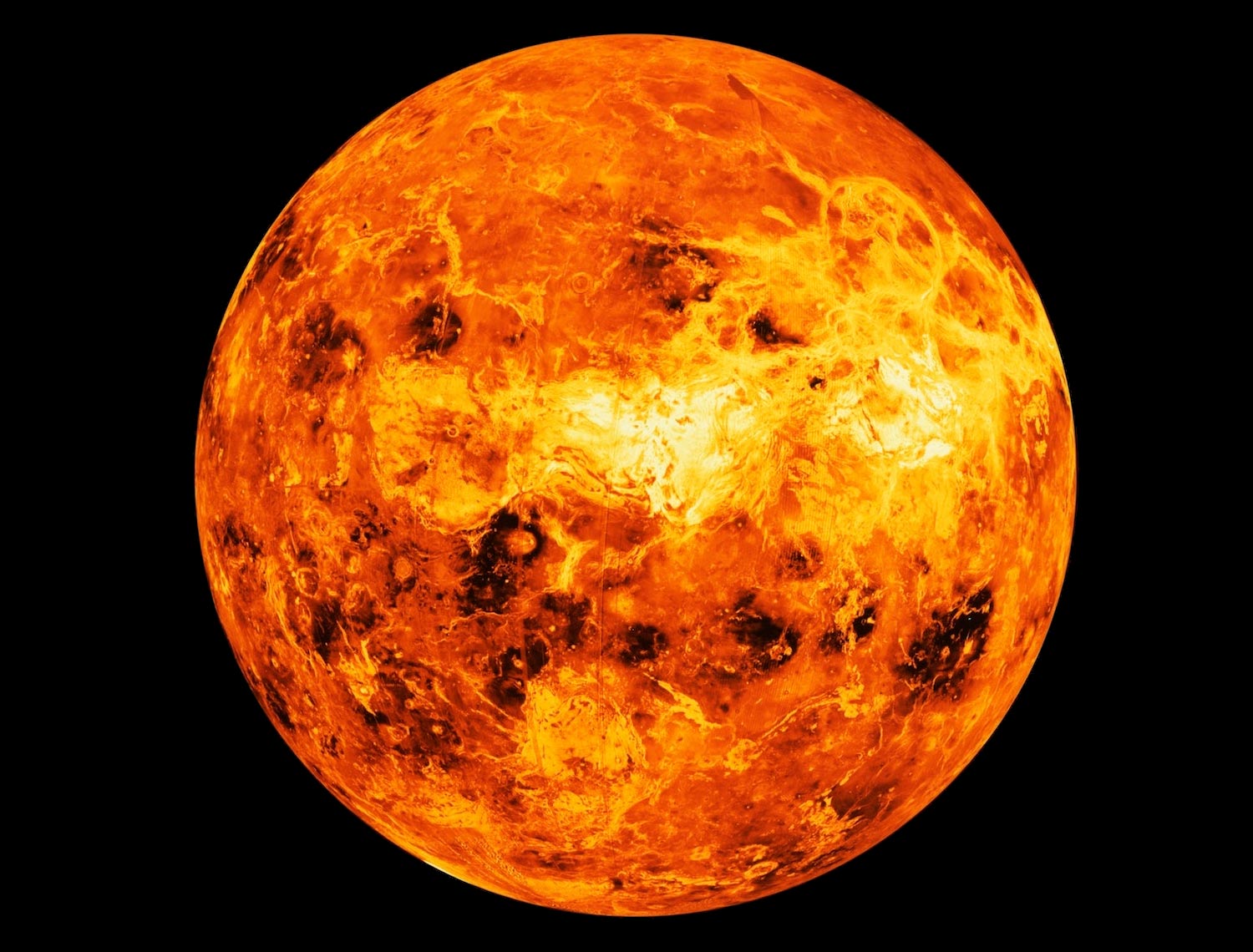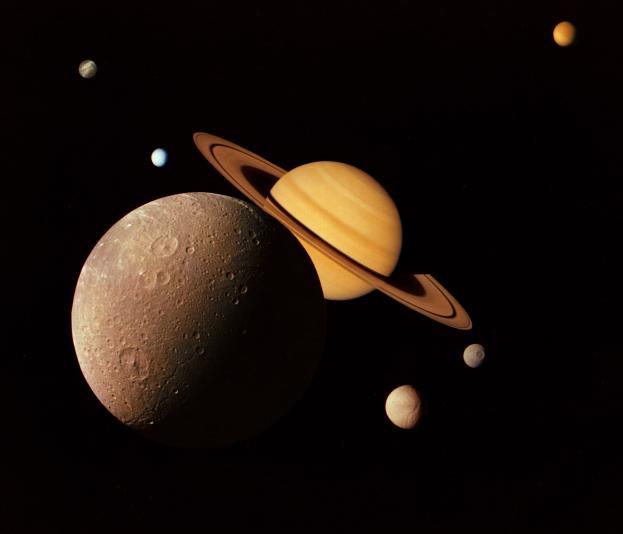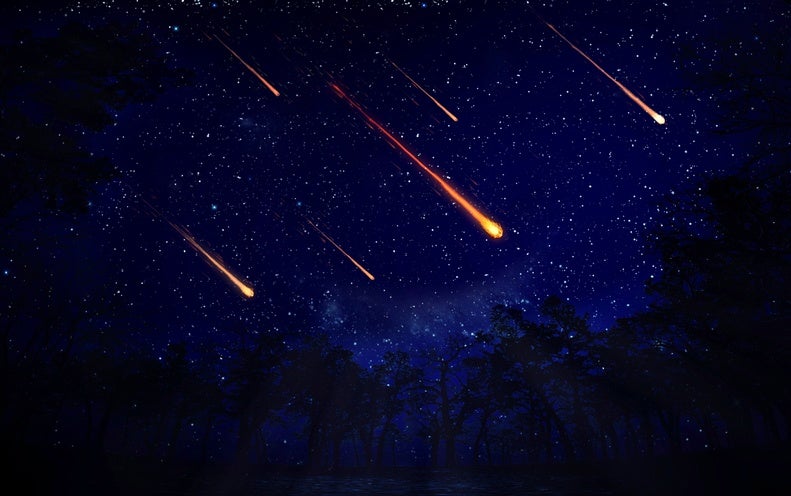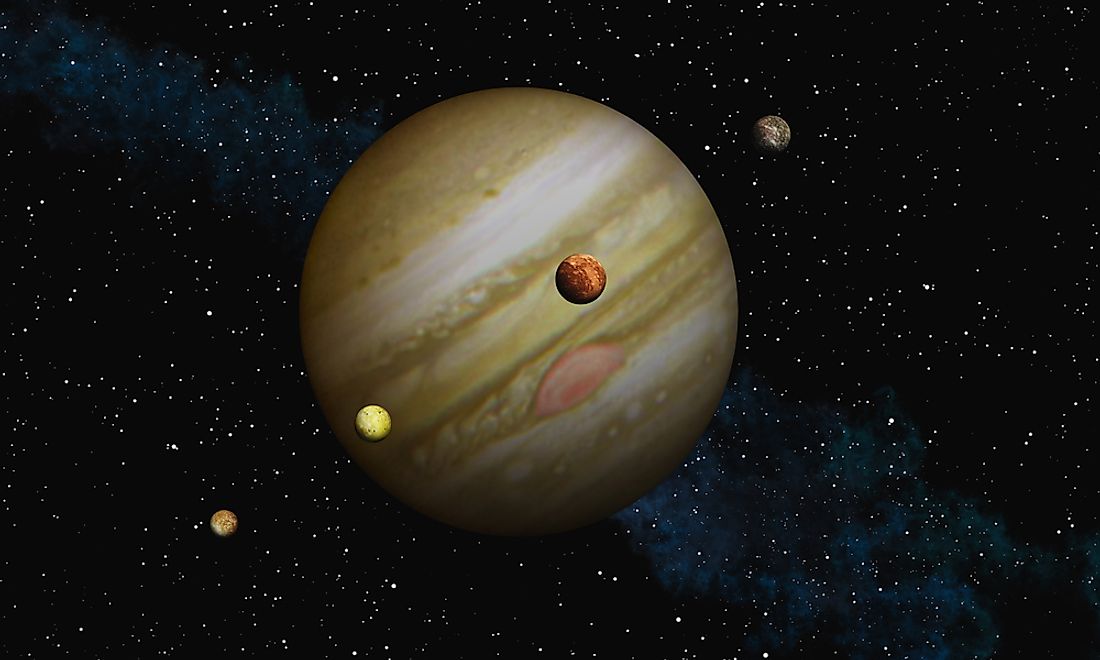Venus means:
In astronomy mythology, Venus was the Roman goddess of love and beauty. In Greek, her name was Aphrodite.
How much would you weigh on Venus?
Because Venus and the Earth are almost the exact same size, you would weigh almost exactly the same on either planet. If you weighed 70 pounds (32 kg) on Earth, you would weigh 63 pounds (29 kg ) on Venus.
The Planet
The planet Venus has long been one of the most misunderstood of all the inner planets. Like the Earth, Venus has an atmosphere. However, Venus’ atmosphere is far thicker than that of the Earth, making it difficult for modern science to penetrate. Interestingly, scientists have recently been able to peek through the thick clouds and get a few glimpses of the surface. There are numerous volcanoes and many mountains that appear misshapen.
There is much we still do not know about how this planet looks and what it is like. However, using special instruments and probes scientists have in recent years unlocked many of the secrets long hidden by this mysterious world. In the 1970s, the Soviet Union actually was able to land more than one probe on the surface of Venus. These scientific probes only lasted a few hours before they were destroyed by the intense heat of the planet. These probes were able to take several pictures and send them back to earth for scientists to study.
The Earth Has a Sister
Venus is in many ways Earth’s sister planet. It is almost identical in size, chemistry, gravity and density as the Earth. In other words, Venus is made up of almost the exact same types of materials as the Earth and in about the same amounts. Venus has volcanoes, mountains and sand, just like Earth.
However, if they are twins, then Venus is the evil twin; she is the Earth gone wrong, very wrong. Venus is a deadly world where the surface temperature is hot enough to cook a meal in mere minutes. There is nowhere to hide from this ever present furnace. And with the atmosphere containing mostly carbon dioxide, it makes Venus a highly toxic place. No living thing would ever be able to survive on Venus.
Global Climate Change
In the early days of Venus’ 4 billion year long life, it would have appeared very similar to the Earth. The two would have been almost identical. However, over a period of a few million years, forces on Venus caused it to take a very different course than the Earth.
Venus lies much closer to the Sun than does our planet. That single fact has caused an unstoppable chain of events that doomed Venus to its fiery existence. Owing to its closer proximity to the Sun, Venus’ temperature should have been only slightly warmer than that of the Earth. But as the planet warmed, the water evaporated. This increase in water vapor in the atmosphere began a cycle of global warming that could not be stopped. Water vapor is a very effective greenhouse gas. (Greenhouse gas soaks up hot air and prevents it from escaping into space). The increase in water vapor caused the temperature to rise further, which caused more water to evaporate, causing the temperature to climb still further.
Today it is likely that all of Venus’ water has evaporated into the atmosphere. This atmosphere effectively traps the Sun’s energy causing the surface to burn much hotter than it naturally would. The temperatures on Venus can reach almost 900 degrees Fahrenheit (approx 482 degrees Celsius).
Venus is Dry
The Earth has a protective layer known as the Ozone Layer. This important shield protects the Earth from the Sun’s ultraviolet radiation. Venus does not have an ozone layer. As a result, the ultraviolet radiation from the Sun finds its way directly into Venus’ atmosphere. Over many billions of years this radiation has slowly broken down water molecules into hydrogen and oxygen. As a result, there is today very little water left on Venus.
Geography
Venus has many, many volcanoes. We don’t know for sure, but it is possible that Venus has more volcanoes than any of the other planets in our Solar System. But unlike the volcanoes on Earth that can sometimes erupt in an explosive manner, the volcanoes on Venus are believed to erupt in a less violent way. In fact, it is believed that they don’t erupt at all. Instead, it is thought that the lava just slowly flows out onto the surface.
Venus has a few mountainous areas along with extensive flat areas. There are craters and evidence that the surface long ago moved, much like the surface of the Earth moves today. But unlike the Earth’s surface, there is no evidence that Venus has a tectonic plate system.
From West to East
If you somehow found a way to survive the scorching heat found on the surface of Venus, you would quickly notice something strange about the days. Aside from the fact that Venus rotates very slowly so that a day on Venus lasts more than 100 Earth days, Venus also rotates in the opposite direction as almost all the other planets.
Instead of the Sun rising in the east and setting in the west, the Sun on Venus would appear to rise in the west and set in the east.
Moons:
Venus has no moons.






